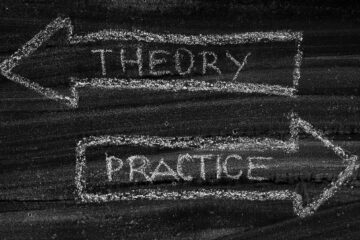Educators around the world are asking themselves how to safely and responsibly open schools, but also grappling with the reality that as the coronavirus pandemic continues in much of the world, schools may never look exactly the same as they did just months ago. And so, even as many educators are acknowledging the value of in-person learning, many are also accelerating discussions about how education should change to face an uncertain and volatile future.

NCEE has been monitoring and analyzing how high-performing education systems have adapted to distance learning and how they are thinking long-term about future education redesign. This month, NCEE had the opportunity to participate in two important conversations on this topic, one an international gathering and one a discussion among US state legislators.
In early June, NCEE’s President and CEO Anthony Mackay moderated the 2020 International Summit on the Teaching Profession (ISTP). This event, originally intended to take place in Valencia, Spain, was instead convened virtually by Education International, the Organisation for Economic Co-operations and Development (OECD), and Spain’s Ministry of Education. The virtual meeting brought together education leaders from government and teachers unions from 35 leading countries: the 30 highest performing and five fastest improving on the Programme for International Student Assessment (PISA) exam. Four key themes emerged from the discussion:
- First, high-quality, mutually respectful collaboration between governments and the teaching profession has been essential to respond to the pandemic.
- Second, there have been many promising innovations that have emerged in response to the need for distance learning, but the pandemic has also reinforced the value of in-person schooling.
- Third, teacher collaboration has become even more essential as teachers have been forced to try new strategies and transition to unfamiliar virtual learning spaces, and intentional policies to enable teachers to work together as professionals will be crucial.
- And fourth and most important, the pandemic has exposed longstanding inequities in education to a degree that has been eye-opening, and systems must adapt to become more inclusive and equitable moving forward.
A report of the proceedings of the ISPT event is forthcoming and will be shared in the coming weeks.
Additionally, during the first week of June, NCEE joined 30 legislators and staff from the National Conference of State Legislatures (NCSL) on a webinar to discuss the experience of high-performing education systems as they transitioned to distance learning, how they are reopening schools, and how the pandemic has led them to rethink education for the future. During the webinar, Anthony Mackay and Nathan Driskell emphasized many of the themes that arose at the ISTP convening, along with NCEE’s research findings:
- First, Mackay and Driskell stressed that while many reforms would likely emerge from this crisis, the crisis had, at the same time, demonstrated the irreplaceable value of in-person schooling: school is critical as a place to build young people’s social skills, deepen relationships between teachers and students, and enable parents to return to work.
- Second, they observed that many high-performing jurisdictions are accelerating their work on redesigning education systems in the wake of this crisis. While it is likely too soon to point to concrete lessons for the future of education redesign, NCEE identified the direction that many high-performing systems are heading. High-performers are taking the opportunity to assess and address learning gaps systematically, investing more in developing virtual learning spaces, prioritizing teaching the material that matters most for deep understanding and focusing assessment on what students most need to know to succeed at the next stage of their education, developing student self-motivation more intentionally, and doing more work to engage parents in ways that are focused on learning.
The fact that top performers are already thinking critically about these issues suggest that this crisis will enable them to move even further ahead. And it makes the challenge U.S. states face even more urgent.




